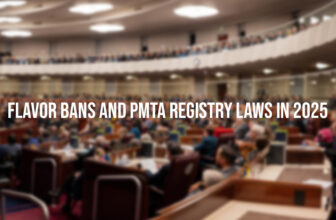On April 17, the Birmingham City Council voted to ban cigarette smoking in bars, the last refuge for Birmingham residents wishing to smoke cigarettes inside public places. A crowd of supporters and opponents spoke for more than two hours before councilors finished arguing and voted in favor of the ordinance, as the majority anti-smoking audience in the council chambers applauded. Under the new ordinance, smoking will be prohibited inside all businesses and within seven feet of any business entrance (with the exception of cigar stores and “hookah” bars that derive at least 80 percent of sales revenue from tobacco products). The changes take effect around May 17.
Those speaking in support of the law included Alabama Secretary of State Beth Chapman, whose husband died of respiratory disease at age 50 despite being a nonsmoker. Chapman, who has a respiratory illness, stated, “We as a society would never intentionally bruise the bodies of a person with hemophilia or put large amounts of sugar into the bodies of people with diabetes against their will. So why should we allow others to put large amounts of smoke into the bodies of people with respiratory illnesses against their will?” After admitting that she smoked 30 years ago, Chapman pleaded, “I implore you to do all that you can to eradicate even the slightest opportunity for another life to be endangered because of something we knew was dangerous.”
Another proponent of the ban, a local physician and clinical associate professor at UAB wearing an oxygen device, also admitted to being a former smoker. “Even walking through a crowd where people are smoking tends to affect my breathing because I have such poor residual [lung] function,” he noted.
While proponents spoke often of secondhand smoke as the primary reason to pass the ordinance, opponents pointed out that individuals were already free to avoid smoky bars, and that the majority of bartenders working in such establishments were smokers themselves. Of greater concern was the suspicion that, without similar bans being instituted simultaneously by neighboring cities, Birmingham bars would see many of their customers leave for smoke-friendly establishments outside of the city limits.
James Little, representing the Five Points South Merchants Group, pointed out that more than $25 million of the city’s 2011 tax revenue came from “food and restaurant taxes.” Along with other business owners, Little expressed frustration over the fact that the final wording of the ordinance was posted on the city’s web site only 24 hours before the April 17 public hearing, giving merchants little time to review it. The Council ignored Little’s request to postpone their vote for a week.
Stillwater Pub co-owner Jason Brunson objected to the new ordinance as unfair “in a place where we don’t even test emissions.” Brunson stated, “Walking past old cars can be as dangerous as someone walking through an outside area, having to walk through someone’s cigarette smoke to get to a door to a nonsmoking establishment.” However, another resident was appalled that she had to walk on public sidewalks where employees and patrons sit in “lounge chairs” on patios that aren’t large enough to be real patios. “You see the smoke before you even get to it,” she said. Stroke victims supporting the ban blamed their conditions on past smoking habits, while others described how secondhand smoke ruined the lives of relatives.
A UAB researcher who studies the effects of nicotine on vision requested that the Council remove “e-cigarettes” (electronic cigarettes that vaporize a liquid which usually contains nicotine) from the ordinance. “I’ve been using an electronic cigarette for two-and-a-half years. I have not smoked for two-and-a-half years,” she said. “I can breathe again. I no longer smell bad. I am no longer a risk to other people. My health has improved. . . . The vapor from electronic cigarettes is no more dangerous than the vapor from a cup of coffee. It’s much less noxious than too much perfume in an enclosed area.” E-cigarettes were later given the OK after Councilor Valerie Abbott noted that the FDA has drawn no conclusion regarding the dangers of secondhand vapor. If the FDA determines that such is harmful, the law will be amended.
The most interesting statement came from a City Hall staff member, speaking as a citizen, who suggested to the Council that if tobacco is that bad, “let’s ban it and stop collecting tax revenue on it.”
Source: http://www.bwcitypaper.com/Articles-News-i-2012-05-03-246931.113121-Tobacco-Strikes-Out.htel









Good news for e-cigs!